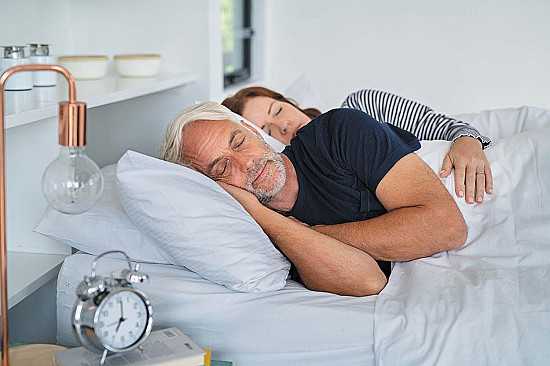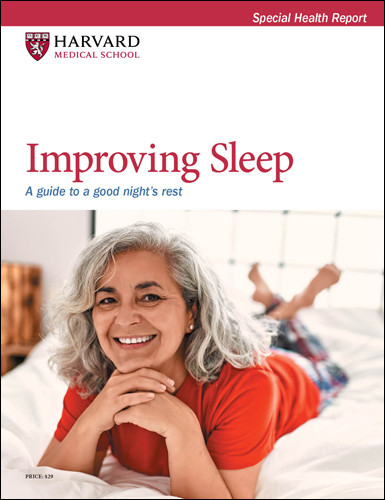Eating junk food may affect deep sleep
In the journals
- Reviewed by Howard E. LeWine, MD, Chief Medical Editor, Harvard Health Publishing; Editorial Advisory Board Member, Harvard Health Publishing

Want better-quality sleep? Cut back on junk food. Researchers found that eating an unhealthy diet high in processed food can affect people's deep sleep (also known as slow-wave sleep). During this sleep stage, the pituitary gland in the brain releases a burst of growth hormone, which helps build and repair muscles, bones, and other tissues. Deep sleep also boosts cognitive function and memory.
The study, published online May 28, 2023, by Obesity, looked at 15 healthy men with normal sleep habits (sleeping an average of seven to nine hours per night). The participants ate either a healthy or unhealthy diet for one week. The two diets contained the same number of calories, adjusted to each individual's daily requirements. However, the unhealthy diet had a higher content of sugar and saturated fat and included many processed foods.
After a week on the diet, the participants spent two nights at a sleep laboratory where their slow-wave brain activity was measured. They first slept a regular night that matched their usual sleep schedule. The next night they were kept awake past their regular bedtime and then allowed to catch up on their sleep to mimic disrupted sleep. After several weeks, the study was repeated, with everyone switching to the other diet and revisiting the sleep lab.
The researchers found that when participants followed the unhealthier diet they had poorer-quality deep sleep (indicated by a decrease in slow-wave activity). This was true for both normal and disrupted sleep. They noted that it is difficult to draw conclusions from only one week of poor eating. Still, the findings suggest there may be important ways diet can influence sleep quality.
Image: © JGI/Jamie Grill/Blend Images LLC/Getty Images
About the Author

Matthew Solan, Executive Editor, Harvard Men's Health Watch
About the Reviewer

Howard E. LeWine, MD, Chief Medical Editor, Harvard Health Publishing; Editorial Advisory Board Member, Harvard Health Publishing
Disclaimer:
As a service to our readers, Harvard Health Publishing provides access to our library of archived content. Please note the date of last review or update on all articles.
No content on this site, regardless of date, should ever be used as a substitute for direct medical advice from your doctor or other qualified clinician.
















